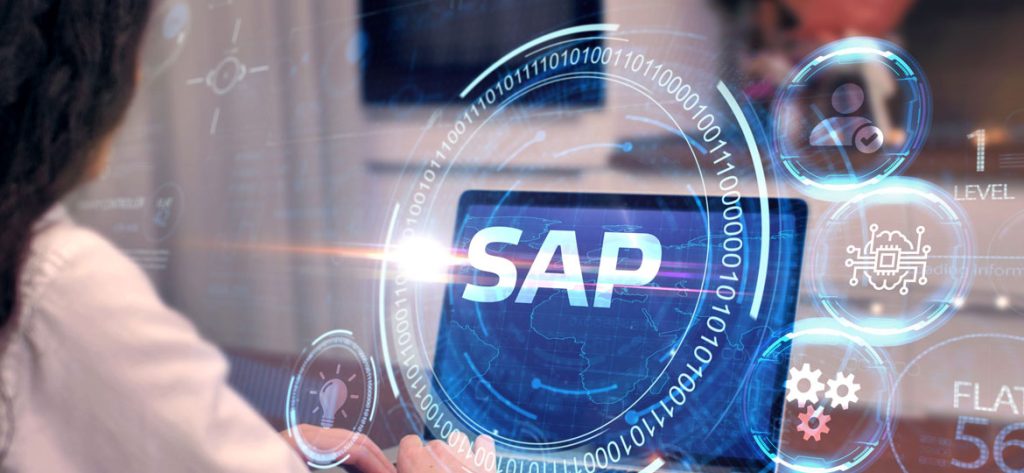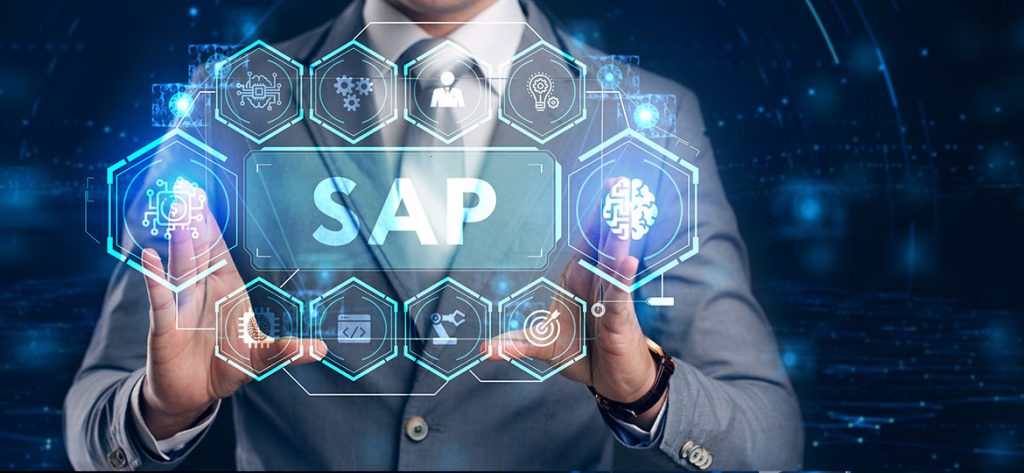SAP GRC (System Applications Products Governance Risk Compliance) is a collection of tools and services that assist you in managing enterprise resources to decrease compliance costs while minimizing risk. The major advantage of this tool is to stop fraud, and cross-enterprise so that SAP systems must be protected from access and permission threats. This can also help to cut the cost of ongoing compliance and control.
Top 40 SAP GRC Interview Questions and Answers
1. What accomplishes the profile maker?
Ans. Instead of manually entering transaction SU01, the profile generator provides roles for appropriate user roles.
2. How many profiles can hold one set of authorizations?
Ans. If the number of authorizations for a profile exceeds 150 authorization feet, the profile generator will automatically create more profiles for the job. It has 12 characters, of which the first 10 can be altered when the string is formed.
3. What does Grc’s landscape look like?
Ans. Two system landscapes make up SAP GRC Training .
- GRC DEV SAP
- There is no quality system in SAP GRC PRD.
4. What is the GRC rule set?
Ans: A collection of rules simply refers to a rule set that contains global rules.
5. If you are utilizing ten firefighter IDS simultaneously. How will the controller receive the log report?
Ans: With high-level comparison, this is given to users with changing roles.
6. What is a ruleset, exactly? And how can the ruleset’s risk ID be updated?
Ans: When performing indirect roles of users with Tcodes P013 and P010, we must compare the results, which are recorded in the user’s SU01 record.
7. What is the procedure for changing a role?
Ans: A PFCG time-dependent background job completed this assignment.
8. Who will compare the users?
Ans. It is recommended to employ user comparison if modifications must be made right away. For further information on online SAP GRC training, contact.
9. What purpose does GRC risk management serve?
Ans. You may handle risk management tasks with SAP GRC risk management. You should make a plan to identify business risks, put risk management strategies into place, and enable better decisions that boost company performance.
10. What various kinds of hazards are there?
Ans.
- Risk in operations
- tactical risk
- Adherence danger
- economic hazard
11. How is SAP GRC audit management defined?
Ans: By recording artifacts, organization, work documents, and audit reports help an organization’s audit management process. It will combine with other governance, risk, and compliance tools to push audit management policies and organizational goals to the background.
12. What is fraud management in SAP GRC?
Ans. The SAP GRC fraud management tool aids in early fraud detection and prevention. With greater accuracy and ease, fraudulence can be detected when using a vast amount of data for lowering and minimizing business defeat stands.
13. What are services for global trade?
Ans. To the extent possible within the constraints of international trade management, SAP GRC GTS supports enterprises in focusing on cross-border supply. Having a single repository for compliance master data and irrespective of the size of an organization has some consequences for international trade regulatory agencies.
14. Is it feasible to lock all users simultaneously in SAP?
Ans. Yes, it is feasible by using Tcode EWZ5.
15. What exactly do the terms authorization object and authorization object class mean?
Ans. It relates to SAP Course object actions. It is divided into various functional categories, such as accounting and finance.
16. How effective are you at employing GRC access control in the SAP system?
Ans. The smallest unit of the UME role in that a user can create access permissions is the UNE role, which is used by SAP GRC access control to regulate system and administrator operations.
17. Describe UME. How does it function?
Ans. UME is User Management Engine. Every possible standard UNE has the admin user’s designated action.
18. In terms of access control, what do risk analysis and remediation mean?
Ans. The capacity to undertake security audits and analyze the segregation of roles through risk analysis and remediation. It is a tool that has identification potential. It is a tool for analyzing and resolving regulatory compliance-related risk audit issues.
19. What is the full form of IAM?
Ans. IAM means Internal Audit management
20. What do the GRC’s report and analytics work center do?
Ans. Process control shares Ans-Report and the analytics report center, and the analytics work center in GRC applications has a compliance area.
21. What kind of reports goes under process control?
Ans: Evaluation status dashboard and datasheet with survey results.
22. SOD risk management – what is it?
Ans. Risk Management and the segregation of roles are essential in every firm. beginning with the identification of risks and continuing through rule validation and compliance.
23. How do you implement GRC access control for user authorization in the SAP system?
Ans. UME (user management engine) is used by the SAP GRC access control to regulate user authorization in the system. Additionally, SAP GRC gives administrators access to actions, which are the smallest units of the UME roles that users can use to construct access privileges.
24. How can the superuser log be checked?
Ans. With the help of the following T-code: transaction: /n/VIRSA/ZVFAT V01.
25. Can I rapidly see the value entered in a group of emotions in a table for authorization?
Ans: I’m trying to locate the values for P origin across all of the authorization profiles without having to dig into each profile and authorization individually.
AGR 1251 will provide some accurate information.
26. Where were the eagerly awaited deleted users logged?
Ans. To find the information, try RSUSR100 or dubbing. Play the transaction’s SUIM documents and delete them.
27. How can I fill up a missing authorization?
Ans. We can decide to use Pfcq to add the missing authorization.
28. How do a role and a profile differ from one another?
Ans. Role and profile go hand in hand, answer. The role is used as a template to which Tcodes reports can be added. When you create a role, a profile is automatically created and provides authentication.
29. What profile versions are there?
Ans. Versions of profiles are very useful and can be changed using RZ10 to create a new profile with a different version that is then stored in the database.
30. What use do role templates serve?
Ans. SAP is used in Ans-Role templates that are aimed at transactions, reports, and web addresses.
31. What distinguishes a single role from a composite role?
Ans: The associate profile was created via the collection transaction, which collected numerous roles.
32. Can the role template be modified?
Ans. Yes, it is possible to change the user role template. As they are given in SAP, we can use them. We can build them from nothing.
33. How can I create users?
Ans. Execute transaction SU01 and complete all fields, is the answer.
The Logon data tab contains the user’s original password.
34. What distinguishes USobox and USob+C, respectively?
Ans. The permission checks that must be carried out during a transaction are specified in table USOBX C. The profile generator must be kept up to date. The profile generator should have allowed for the free creation of the table USOBT C that is defined for each transaction for each authentication with default values object.
35. What do you mean by derived role?
Ans. Derived roles are different from the one which is already maintained. Here the codes are assigned before and passes on which can be further changed. Hence, derived roles are an elegant way to maintain roles that do not differ in their work and have different characteristics regarding the organizational level.
36. What is a composite role, exactly?
Ans: Composite roles group have various roles. It improves precision. Roles can also be composite roles. It doesn’t have the permitted information on it. It kept the information for authorization. You can set up the composite to the group by adding data.
37. Which comparisons does the user make?
Ans. The profile is not generated until after the user master records have been compared, according to the answer. Playing with FGC Time dependence is possible.
38. Is it possible to utilize wildcards in authorizations?
Ans. Wild card values may be used in s-Authentication. A*B is the same as A* as the system avoids everything.
39. What is the cleanup of Pfcg dependencies?
Ans: The profiles are deleted by the Pfcg time dependence background report. You might also utilize transactions PFUD.
40. What distinguishes the table buffer from the user buffer?
Ans: The shared memory contains the table buffers. When accessing the data records in the database, buffering the tables improves performance.
Final words
Once you have mastered the crucial SAP GRC interview questions and responses listed above, you will be prepared to ace SAP GRC interviews at any reputable company. Because of the increasing expansion and advancement of the software industry, top businesses are demonstrating a strong interest in hiring SAP .
FAQs
Ans. These SAP GRC interview questions and answers are a set of questions asked in the interview. You can explore a few more interview questions.
Ans. FI, TR, EC, CO, MM, PP, QM, EAM, IM, HR, SD, BW, etc.
Ans. Financial management, Accounting for general ledgers, regulating, commercial warehousing, quality control, sales, and distribution.
Ans. Yes, SAP GRC provides the highest-paid opportunities.
Wacht these Kodakco Reviews Videos:
- https://www.youtube.com/watch?v=eSN7DcTyQFE
- https://www.youtube.com/shorts/9mIFRdilXu8
- https://www.youtube.com/watch?v=mQsQv8sSrBE
- https://www.youtube.com/shorts/Mx4f5ZSeUYU
- https://www.youtube.com/watch?v=IYMe2cTyeR0
- https://www.youtube.com/watch?v=RHkSuuV41GQ
- https://www.youtube.com/watch?v=GSxu13gt9Dw



